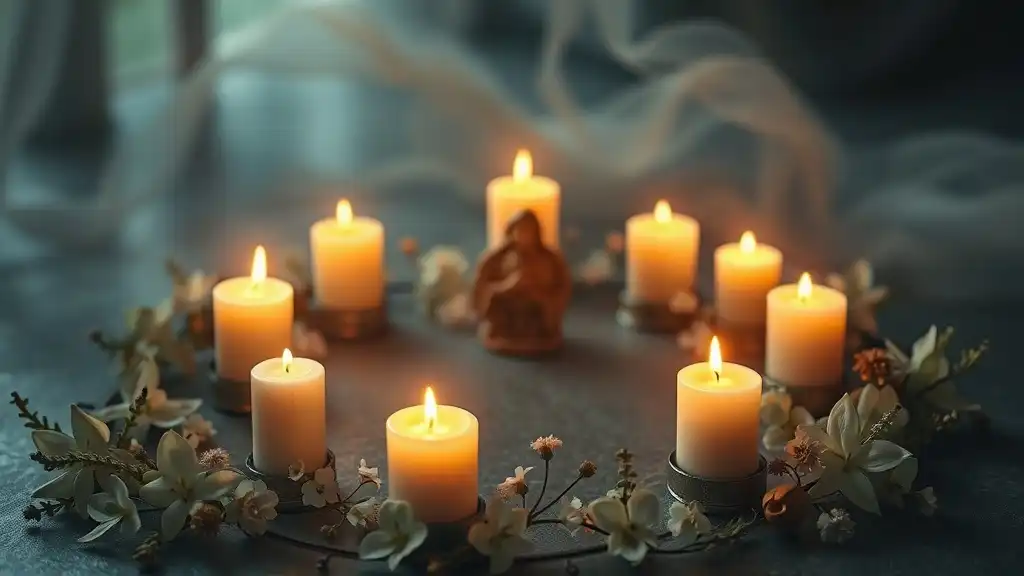The concept of coming full circle holds profound meaning within the spiritual realm, offering insights into our personal journeys and the cyclical nature of life. As we navigate through various experiences, the idea of wholeness and unity becomes increasingly clear, woven intricately into the fabric of our lives.
The Concept of Full Circle
Definition of Coming Full Circle
Coming full circle refers to the completion of a cycle or journey, often resulting in a sense of closure and renewal. In spiritual terms, this transition signifies a return to the starting point but with newfound wisdom and insight. It is not merely a repetitive loop; rather, it is an elevation of our spiritual understanding, allowing us to revisit experiences from a higher perspective.
One way to visualize this concept is through the metaphor of a spiral. Imagine starting at the center, moving outward, and eventually circling back to the beginning—each iteration brings you to the same point but with a broader view and deeper comprehension.
Symbolism of Circles in Spirituality
The circle symbolizes wholeness and unity across various spiritual philosophies. In many cultures, circles represent the cycles of life and the interconnectedness of all beings. For instance, consider the changing seasons—each cycle reflects a phase of life, from birth to decay to rebirth, teaching us about renewal and regeneration. The moon, with its phases of waxing and waning, serves as another powerful reminder of life's natural rhythms, highlighting that every ending is indeed a precursor to a new beginning.

Spiritual Significance of Coming Full Circle
Personal Growth and Transformation
The journey of coming full circle is deeply connected to personal growth and transformation. Each experience, whether joyous or challenging, contributes to our spiritual evolution. In essence, life is a tapestry of lessons learned, with each thread woven tighter through the joyful moments and pain alike.
Recognizing patterns in our lives can illuminate how far we have traveled. When we revisit past experiences, we often gain valuable insights and mature in our understanding. This retrospective view allows us to see the dots that connect our past to our present, revealing the layers of complexity that contribute to who we are today.
Closure and New Beginnings
Closure is essential in the spiritual journey, as it allows us to properly conclude chapters in our lives before embarking on new ones. Coming full circle means not only recognizing the conclusion of a phase but also being open to the new beginnings that emerge from it. The experience of letting go can be liberating, and it allows us to invite fresh opportunities.
When we embrace the lessons learned from earlier trials, we equip ourselves to approach new endeavors with a clearer mindset. This process ensures that we are not merely recycling past mistakes but rather building on our experiences to foster growth and renewal.

Signs You’re Coming Full Circle
Emotional Signals
As you navigate your spiritual path, you may encounter potent emotional signals that indicate you are coming full circle. Feelings of nostalgia and reflection often accompany this realization. You may find yourself recalling past events or relationships, perhaps feeling a mix of warmth and melancholy as memories surface. Recognizing these feelings is crucial; they are not mere reminiscences but rather pivotal moments that invite reflection and understanding.
Additionally, trust in your intuition and inner knowing. A strong sense of clarity regarding the past or future can guide you toward recognizing cyclical patterns in your life. Often, our inner selves are whispering the truths we need to recognize the significance of coming full circle.
Life Events
Major life changes are often tangible signs that indicate a full-circle moment is occurring. Events such as career transitions, the ending of relationships, or even returning to a place of significance in your life can serve as catalysts for this awareness. These milestones may evoke feelings of closure, prompting us to ponder their ramifications on our remaining journey.
As relationships and connections come back around—whether through reunions or rekindling friendships—we can gain valuable insights that help us better understand ourselves and our paths.

Embracing the Journey
Acceptance of Past Experiences
To truly embrace the journey of coming full circle, accepting past experiences is crucial. Every setback or challenge holds valuable lessons, and understanding them allows us to move forward with a sense of purpose. Practicing forgiveness, both for ourselves and others, fosters a lighter spirit, enabling us to release burdens that no longer serve us.
Recognizing that our experiences contribute to the richness of our lives creates an opportunity for growth. Each event is a stepping stone toward greater understanding, paving the way for acceptance and allowing us to honor the journey.
Cultivating Patience
The concept of timing is significant in spiritual growth. Life does not always unfold as we desire, and it often requires patience to navigate the process of coming full circle. Trusting that each cycle has its appropriate pace is essential. When we surrender to the natural rhythms of life, we cultivate a deeper sense of peace and acceptance.
Remember, the beauty of coming full circle lies in the journey, not solely in the destination. Embrace each moment with an open heart, and trust the process as it unfolds.

Practices to Support Spiritual Growth
Meditation and Mindfulness
Meditation and mindfulness practices can be powerful tools in reflecting on your life’s circular paths. By dedicating moments to quiet the mind, you can gain clarity on your experiences and the lessons they impart. Engage in meditation with the intention to reflect on your past, allowing insights to arise organically.
Mindfulness practices, which encourage present-moment awareness, provide a deeper understanding of how past experiences influence your current perceptions. When we ground ourselves in the present, we cultivate the ability to recognize the patterns of coming full circle and acknowledge their significance.
Journaling and Self-Reflection
Journaling can be an effective way to explore your personal cycles and chart your growth. Use writing prompts to delve into your experiences, asking questions such as, “What lessons have I learned?” or “How have past events shaped my current self?” Documenting your thoughts allows you to notice trends and reflect on your journey's unique aspects.
By tracking your growth over time, you can visually represent your experiences, emphasizing how you have come full circle in various areas of your life.
Community and Support
The power of community cannot be overstated when navigating the journey of coming full circle. Sharing experiences with trusted friends or joining a spiritual group can create a supportive environment for dialogue and connection.
Additionally, seeking guidance from spiritual mentors can illuminate your path and provide a broader perspective on the cyclical nature of life. Engaging with others provides a sense of belonging and reinforces that we are all interconnected in our journeys.

Conclusion
Embracing the spiritual meaning of coming full circle fosters self-awareness and personal growth. Life’s cycles remind us of the beauty of transformation and the lessons embedded in each experience. By recognizing these patterns, cultivating patience, and seeking support, we can navigate the journey with grace and trust. Each full circle brings forth renewal, encouraging us to step forward with a deeper understanding of ourselves and the intricate tapestry of our lives.



















